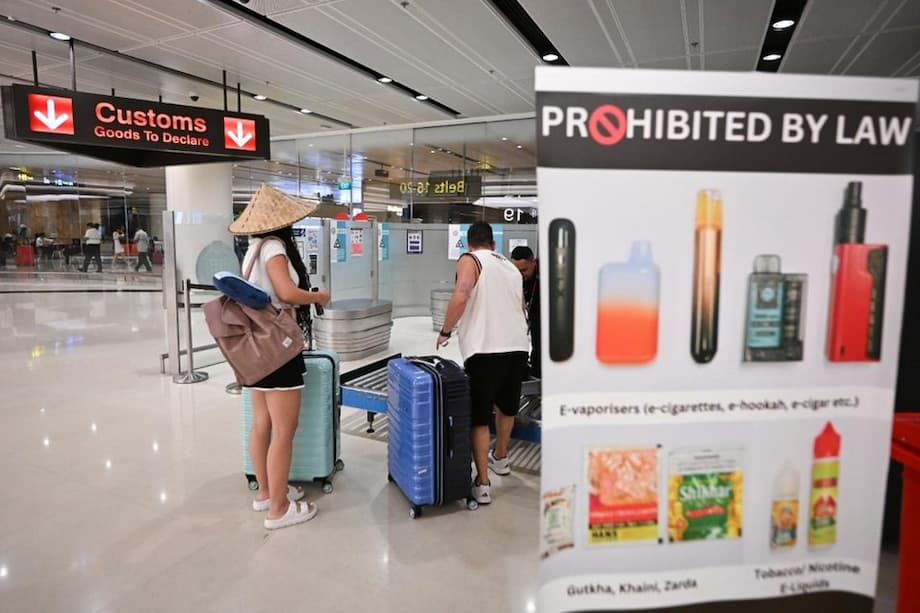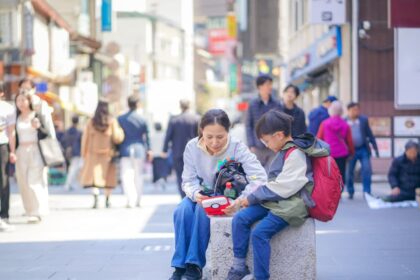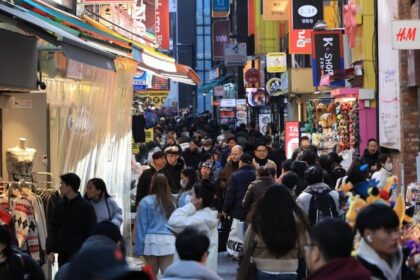Singapore’s New Vaping Crackdown: Foreigners Face Revoked Passes, Deportation, and Bans
Singapore, renowned for its strict laws and clean streets, is intensifying its war on vaping. Starting September 1, 2025, foreigners caught with e-cigarettes or vapes in the city-state face not only hefty fines but also the risk of having their passes revoked, deportation, and permanent bans from re-entering the country. The new measures, announced by the Ministry of Health and Ministry of Home Affairs, represent one of the world’s toughest anti-vaping regimes, targeting both nicotine and drug-laced vapes. The crackdown comes amid a surge in illegal vaping and growing concerns over drug-laced devices, especially those containing etomidate, known locally as “Kpods.”
- Singapore’s New Vaping Crackdown: Foreigners Face Revoked Passes, Deportation, and Bans
- Why Is Singapore Taking Such a Hard Line on Vaping?
- What Are the New Penalties for Foreigners Caught Vaping?
- How Are the Laws Enforced?
- Why Is Drug-Laced Vaping Such a Concern?
- How Does Singapore’s Approach Compare Globally?
- What Is the Reality of Vaping Culture in Singapore?
- Implications for Migrant Workers and Expatriates
- Regional Ripple Effects: Tourism and Cross-Border Challenges
- Criticism and Debate: Is Zero Tolerance the Best Approach?
- What Should Foreigners Do?
- In Summary
Singapore’s message is clear: the nation will not tolerate vaping, and foreigners are subject to the same, if not stricter, penalties as locals. The new rules have significant implications for tourists, expatriates, migrant workers, and international students.
Why Is Singapore Taking Such a Hard Line on Vaping?
Singapore banned the import, sale, purchase, use, and possession of e-cigarettes and vapes in 2018, making it one of the first countries globally to do so. Authorities cite public health concerns, the risk of vaping as a gateway to drug abuse, and the need to prevent youth uptake as key reasons for the ban. The recent surge in vapes laced with etomidate—a powerful anesthetic with effects similar to ketamine—has heightened the government’s sense of urgency.
Health Minister Ong Ye Kung explained the rationale at a press conference:
“Vapes have become a gateway for very serious substance abuse. The devices are now being used as delivery devices for drugs.”
The government’s zero-tolerance approach is designed to send a strong deterrent message, both to residents and to the hundreds of thousands of foreigners living, working, or visiting Singapore.
Recent data underscores the problem. In the first half of 2025, authorities detected 28 cases of e-vape pods containing etomidate—nearly triple the number found in all of 2024. Videos of young people acting erratically after using drug-laced vapes have gone viral, fueling public alarm and support for tougher enforcement.
What Are the New Penalties for Foreigners Caught Vaping?
The new measures introduce a tiered system of penalties, with escalating consequences for repeat offenders and those caught with drug-laced vapes. Here’s how the rules break down:
- First Offence (Nicotine Vapes): Foreigners found with e-vaporisers will have the devices seized and be fined. Under-18s face a S$500 fine (up from S$300), while adults face S$700 (up from S$500).
- Repeat Offenders: Short-Term Visit Pass holders who reoffend will be banned from re-entering Singapore. Foreigners on long-term passes (Employment Pass, S Pass, Work Permit, Student’s Pass, Long-Term Visit Pass, Dependant’s Pass) may have their passes revoked on a third offence, and could be deported and banned from re-entry.
- Drug-Laced Vapes (Kpods/Etomidate): Foreigners caught with etomidate-laced vapes or who test positive for the drug may have their passes revoked, be deported, and banned from entering Singapore immediately—even on a first offence.
- Suppliers and Traffickers: Those caught supplying drug-laced vapes face up to 20 years in jail and 15 strokes of the cane, regardless of nationality.
Home Affairs Minister K. Shanmugam emphasized that while some leniency may be shown to young or first-time offenders on long-term passes, repeat offenders will face removal. Appeals are considered on a case-by-case basis, but the overall approach is uncompromising.
Transit Passengers and Tourists: No Exceptions
Singapore’s strict rules apply even to those merely transiting through Changi Airport. Announcements on arriving flights and prominent signage warn travelers to dispose of vapes in special red bins before clearing immigration. Health Minister Ong Ye Kung stressed:
“Vapes must be disposed of, and transit passengers can declare and dispose of vapes in red bins at the airport.”
If caught, officers will assess whether the vapes are for personal use or trafficking, with the latter carrying much harsher penalties.
How Are the Laws Enforced?
Singapore’s enforcement is multi-layered and involves several government agencies:
- Immigration and Checkpoints Authority (ICA): Increased border checks have led to hundreds of vapes and components being seized in recent months. In one high-profile case, a Malaysian man was arrested at Woodlands Checkpoint with over 890 vapes and 6,700 components.
- Ministry of Manpower (MOM): Nearly 700 officers have been empowered to take enforcement action against vaping, including spot checks in migrant worker dormitories. Some officers are seconded to the Health Sciences Authority for specialized enforcement.
- Public Education: The government is ramping up education campaigns, distributing materials in multiple languages and working with employers, dormitory operators, and NGOs to reach migrant workers and domestic helpers.
- Community and Transport Hubs: Vape disposal bins and anti-vaping signage are being installed at Changi Airport, community clubs, universities, and public transport hubs. Roving patrols conduct spot checks in parks, bus terminals, and train stations.
Authorities are also leveraging new laws to disrupt online sales and marketing of vapes, treating sellers as part of criminal syndicates and confiscating profits even without a conviction. Social media influencers promoting vapes may be blocked from Singapore audiences.
Why Is Drug-Laced Vaping Such a Concern?
The recent focus on etomidate-laced vapes—known as Kpods—reflects a broader concern about drug abuse. Etomidate is a powerful anesthetic that, when inhaled, can cause muscle spasms, seizures, confusion, and physical dependence. The Ministry of Health has classified etomidate as a Class C controlled drug for six months, with plans to extend or adapt the classification as needed.
Possession or consumption of etomidate-laced vapes now carries penalties similar to those for other controlled drugs: up to 10 years in jail and a S$20,000 fine for illegal possession and use, and up to 20 years in jail and 15 strokes of the cane for suppliers. Foreigners are not exempt from these penalties and may face immediate deportation and permanent bans.
The United Nations Office on Drugs and Crime has warned that criminal syndicates are exploiting the vaping industry in Southeast Asia to push synthetic drugs, making Singapore’s crackdown part of a broader regional effort to stem the tide of drug-related crime.
How Does Singapore’s Approach Compare Globally?
Singapore’s zero-tolerance stance is among the strictest in the world. Other countries, such as Thailand, Australia, and Mexico, have also imposed comprehensive bans or severe restrictions on vaping, particularly for travelers. In Europe, countries like Spain, France, and Belgium have banned disposable vapes or restricted vaping in public spaces, but penalties are generally less severe than in Singapore.
Travelers are strongly advised to check local laws before bringing e-cigarettes abroad. In Singapore, even possessing a vape in transit can result in fines, confiscation, and possible deportation. The Australian government’s travel advisory explicitly warns that possession or importation of vapes, even for personal use or in transit, is illegal and carries severe penalties.
What Is the Reality of Vaping Culture in Singapore?
Despite the ban, a conspicuous illegal vaping culture persists in Singapore, especially among young people. Academic studies reveal that vaping is perceived as appealing due to novelty flavors, ease of use, and social acceptance. Some believe enforcement is lax, and that vaping has become an entrenched social norm, fueling calls for regulated markets instead of outright bans.
However, the government’s approach is to denormalize vaping through strict enforcement and public education. The hope is that by making the risks and penalties clear—and by treating vaping as a serious drug issue—illegal use will decline.
Implications for Migrant Workers and Expatriates
Migrant workers, who make up a significant portion of Singapore’s foreign workforce, are a particular focus of the new enforcement efforts. While the incidence of vaping among migrant workers in dormitories is currently low, the Ministry of Manpower is intensifying spot checks and educational outreach. Work-pass holders caught with vapes risk having their passes revoked and being banned from working in Singapore.
Employers, dormitory operators, and NGOs are being enlisted to help spread the message in native languages, ensuring that all foreign workers understand the legal and health consequences of vaping.
Regional Ripple Effects: Tourism and Cross-Border Challenges
Singapore’s tough stance is having unintended consequences in the region. The Indonesian island of Batam, just an hour’s ferry ride away, is positioning itself as a destination for Singaporeans seeking to vape legally. Batam’s tourism officials have noted an uptick in visitors from Singapore, reminiscent of previous trends when Singapore’s regulations on other activities, such as golf, drove tourism to neighboring countries.
Most illegal vapes in Singapore are believed to come from neighboring Malaysia and Indonesia, highlighting the need for cross-border cooperation. While Malaysia has not imposed a national ban, and Indonesia focuses on banning illicit substances in vape juice, Singapore’s approach is far more stringent. Health experts in Malaysia are watching closely, with some urging their government to consider similar measures.
Criticism and Debate: Is Zero Tolerance the Best Approach?
Singapore’s uncompromising stance has drawn criticism from harm reduction advocates, who argue that treating vaping as a drug offence undermines evidence that regulated e-cigarettes can help smokers quit. They call for regulation rather than prohibition, warning that harsh penalties may drive vaping further underground.
Authorities counter that the risks of drug-laced vapes and the involvement of international criminal syndicates justify the tough approach. The government maintains that protecting public health and preventing youth addiction outweigh the arguments for harm reduction.
What Should Foreigners Do?
The bottom line for foreigners is simple: do not bring, buy, use, or possess vapes in Singapore. This applies to all types of e-cigarettes, including those containing nicotine or other substances. Even if you are only transiting through Changi Airport, dispose of any vapes before arrival. Ignorance of the law is not a defense, and penalties are severe.
Travelers should check official government resources for the latest information and comply fully with local laws. Employers and educational institutions should ensure that foreign staff and students are aware of the rules and the consequences of violations.
In Summary
- Singapore is imposing some of the world’s toughest anti-vaping laws, with severe penalties for foreigners caught with e-cigarettes or vapes.
- Penalties include fines, pass revocation, deportation, and permanent bans from re-entry, especially for repeat offenders and those caught with drug-laced vapes.
- Strict enforcement is underway at borders, in migrant worker dormitories, and in public spaces, with increased education and outreach efforts.
- Singapore’s approach is part of a broader global trend of tightening vaping regulations, but its penalties are among the harshest.
- Foreigners—including tourists, expatriates, and migrant workers—are strongly advised to avoid bringing or using vapes in Singapore under any circumstances.












